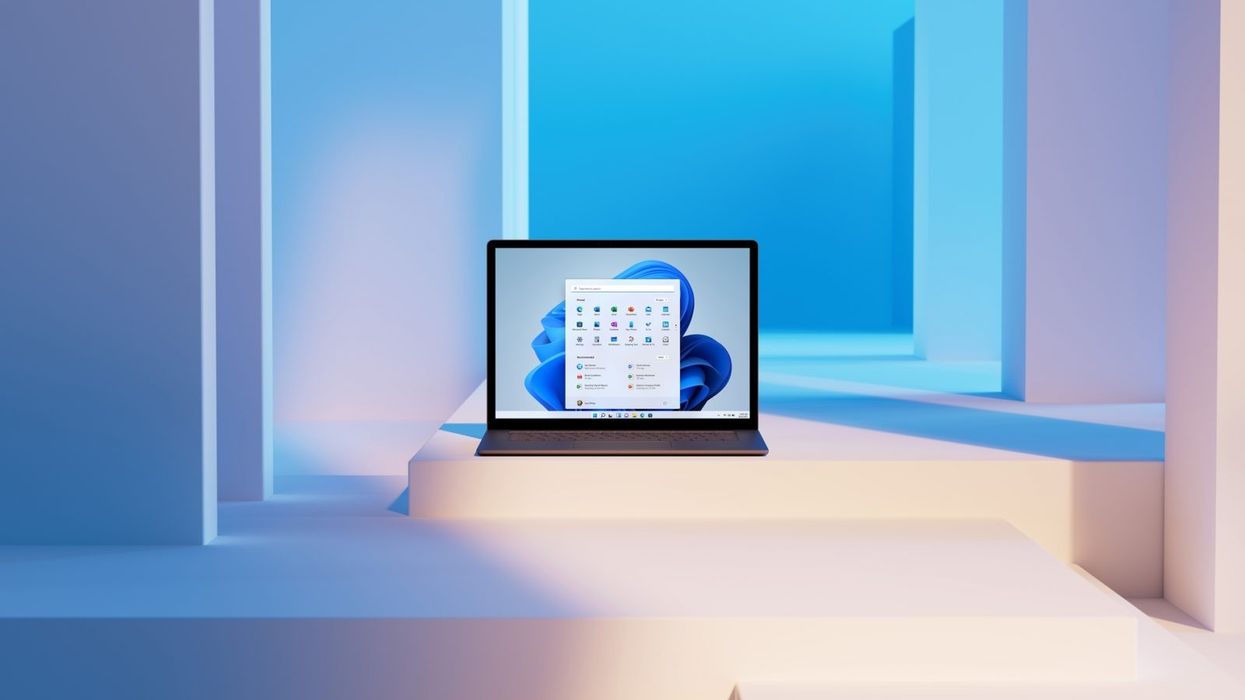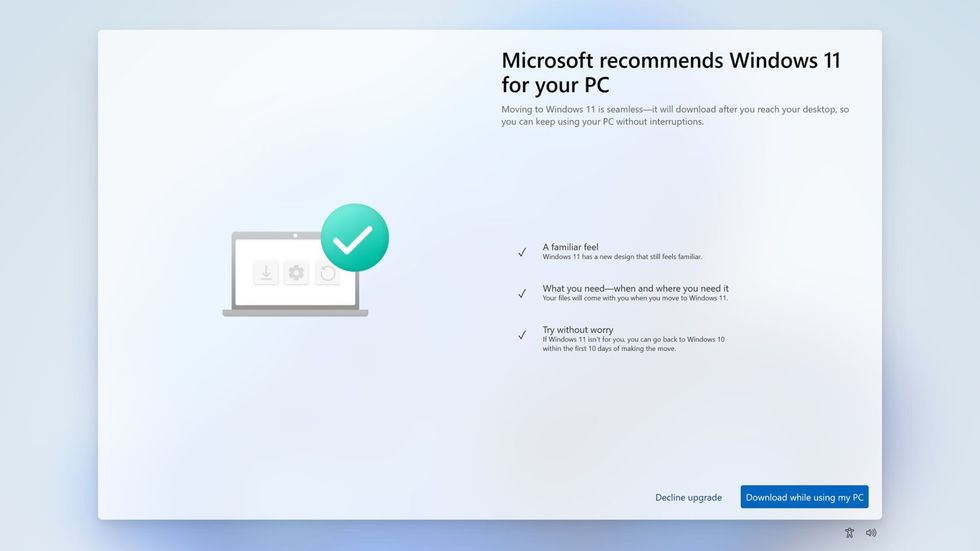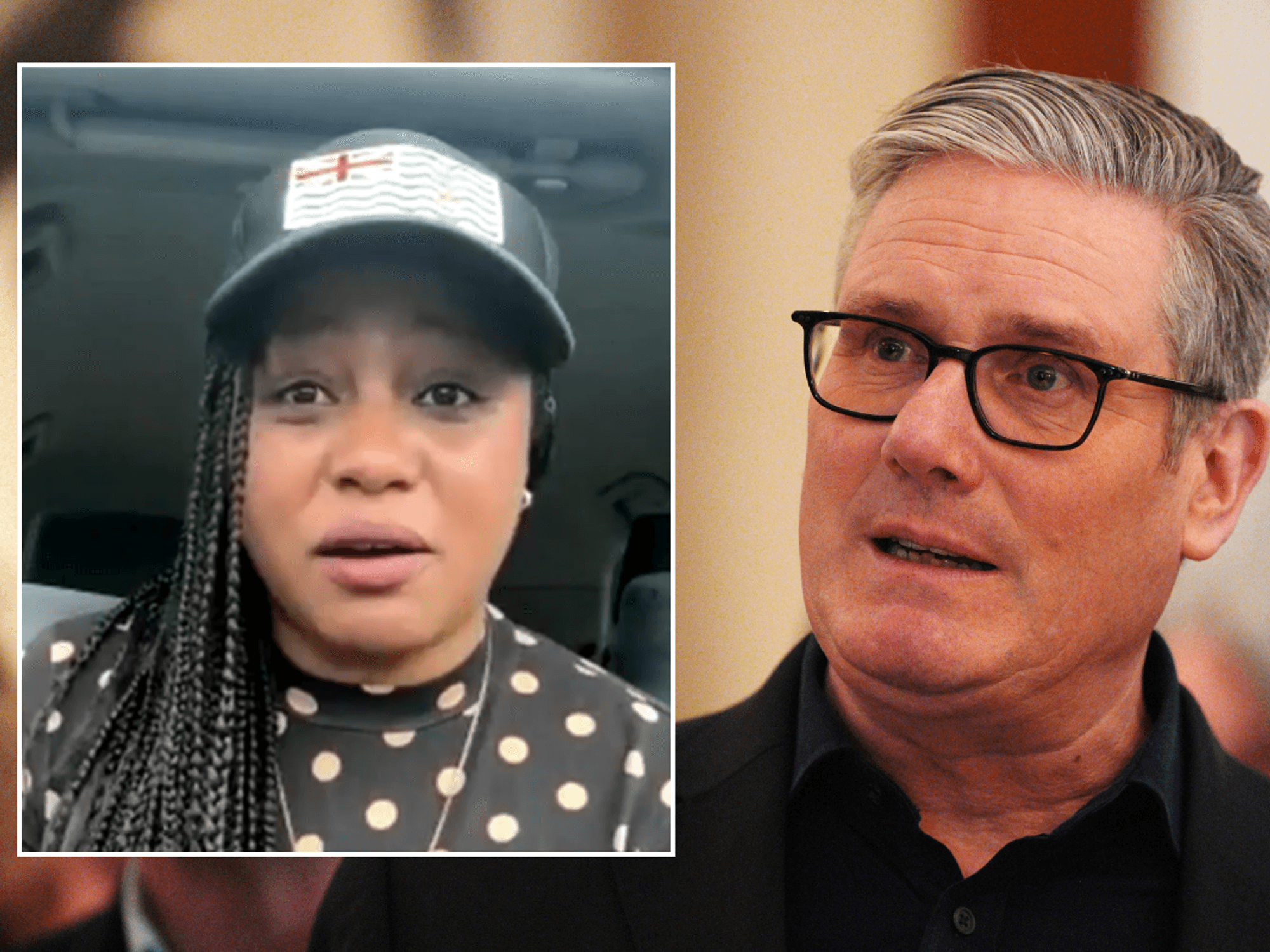Microsoft says it's ahead of schedule, despite millions still relying on Windows 10 as final deadline looms

Microsoft is ahead of schedule compared with the process of moving users from Windows 7 to Windows 10 ahead of the end of support deadline for that operating system back in January 2020
|MICROSOFT PRESS OFFICE

Asked about increase in PCs running Windows 10, Microsoft VP Aaron Woodman says "it doesn't surprise me"
- Windows 10 will lose critical security updates on October 14, 2025
- After that, you'll need to pay an annual subscription to stay protected
- Despite looming deadline, Windows 10 market share is rising
- Vice President Aaron Woodman is not concerned
- He says Microsoft is ahead of schedule seen with Windows 7 transition
Don't Miss
Most Read
Latest
Microsoft isn't surprised by the enduring popularity of Windows 10 — despite its plans to cull support for the desktop operating system in just 16 months for everyone except those willing to pay a monthly fee. Without critical security updates and bug fixes will leave Windows 10 users vulnerable to attacks from hackers and other breaches.
With the clock ticking until the deadline, the number of PCs running Windows 10 has increased. That leaves Microsoft will an even bigger task to convert these users to its follow-up operating system, Windows 11, which will continue to enjoy new features, important security patches, and more until the 2030s.
But despite this, Microsoft says the transition from Windows 10 to Windows 11 is ahead of schedule, with Redmond-based company further along than its similar switch from Windows 7 to Windows 10 back in January 2020.

Microsoft is testing a number of different approaches to push users towards Windows 11, including a fullscreen pop-up that talks about the benefits of upgrading to the newer operating system
| MICROSOFT | WINDOWS LATESTWhen asked about the rising number of Windows 10 users in an exclusive interview with Express.co.uk, Aaron Woodman, who serves as Vice President of Windows Marketing at Microsoft, said: "It doesn't surprise me."
"We had a bunch of customers on Windows 7 even after we launched Windows 10, until the end of support date for Windows 7. We're actually ahead of the Windows 7 to Windows 10 transition."
Mr Woodman sees the immovable userbase relying on Windows 10 every day as a testament to the quality of that operating system, which first launched back in July 2015 as a follow-up to the ill-received Windows 8.
"If you look at Windows 10 I think it's quite unique in the sense that it took a significant leap in its performance and more importantly, its durability and its capability of running PCs," he told Express.co.uk. "Windows 10 moved the hardware floor and that's really the big difference between Windows 7 transition to Windows 10."
The Microsoft VP is confident there will be a deluge of Windows 10 machines upgraded to Windows 11 ahead of the end of support deadline, scheduled for October 14, 2025.
Individuals, businesses, and education users who need a little more time to transition over to Windows 11 can buy an extra three more years of security updates as part of the Extended Security Updates (ESU) scheme.
Microsoft has only revealed the cost for enterprise users for now, with the first-year subscription priced at $61 (£48.19). To incentivise Windows 10 users to upgrade to the next iteration of the desktop operating system, Microsoft will double the cost every year.
Businesses who are subscribed to a cloud-based solution like Intune or Windows Autopatch will enjoy a 25% discount on Extended Security Updates. Microsoft is offering an even more generous discount to schools, with the first year of ESU dropping to just $1 (79p), this doubles to $2 for year two and $4 for the final year.
ESU pricing for individuals will be unveiled in the coming months, Microsoft has announced.
“Every company I've talked to has plans to move off of Windows 10 into Windows 11 at or before or afterwards using the extended support agreements we have," Mr Woodman confirmed in the interview.
"It's different depending on the country. Developed countries have moved overwhelmingly to Windows 11, but you have places that have different socioeconomic classes and places like China, that have very long duration where you have PCs that get handed down and resold at a level that we don't really see in the developed markets. You still see Windows 7 and Windows XP running in China as an example — so they just have different life cycles."
Unfortunately, there’s no guarantee that your current PC will be able to upgrade to Windows 11. With this rebooted operating system, Microsoft introduced several strict system requirements. By some estimates, these restrictions will result in 240 million Windows 10-powered PCs to landfill.
Windows 11 only officially supports Intel’s 8th Generation (known as Coffee Lake) or Zen 2 CPUs and newer, leaving millions of devices sold with Windows 10 preinstalled unable to upgrade.

Microsoft has kickstarted a new category of Windows 11 PCs, known as Copilot+ PCs, that offer additional extras not available in other versions of Windows 11, thanks to their specialist AI chipsets
| MICROSOFT PRESS OFFICE | GBNFollowing a public backlash, Microsoft did add a number of exceptions to its list of supported chipsets, including the 7th Generation Intel Core i7-7820HQ – a processor that was used in the Surface Studio 2, an all-in-one desktop machine that cost £3,549 at launch back in 2018.
Nevertheless, this marks the first time that Microsoft has enforced such specific processor requirements with its operating system upgrade.
LATEST DEVELOPMENTS
- Wary about ditching Windows 10? Microsoft just made things much worse
- Freeview, Sky TV and Virgin Media viewers will lose 5 channels next month
- Over 2.5 million BT, Sky, and TalkTalk users have broadband speeds supercharged
In comparison, Windows 8 and Windows 10 only stipulated a 1GHz processor, at least 1GB of RAM, and 16GB of available storage. Windows 11 requires an Intel processor first launched in October 2017 as well as 4GB of RAM and 64GB of storage.
The requirements to make the switch to Windows 11 have allowed rival Google to take advantage of the situation to bolster its own market share of desktop PCs by offering a free upgrade for all Windows 10 users to its ChromeOS system, which is based on the world's most popular web browser and boasts years of security updates and support.










